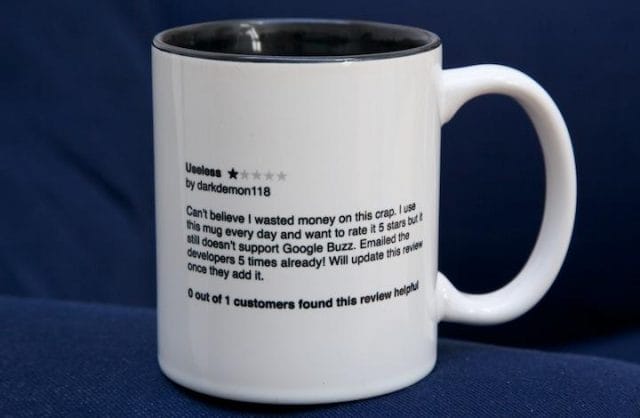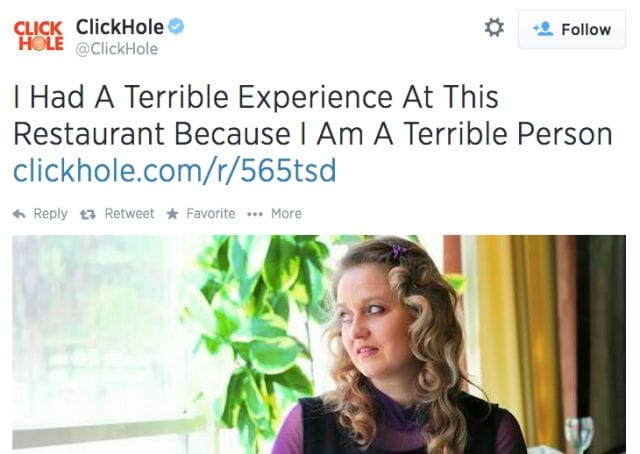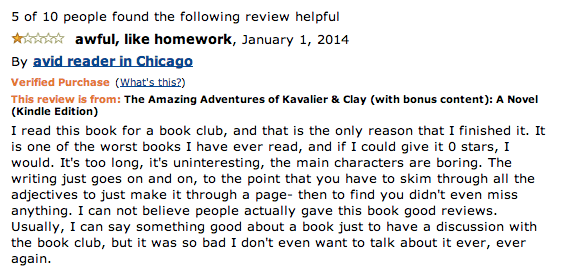
A mug created by developer Marco Arment inspired by one-star app reviews
Recently, this author called a car from a ride-sharing service to get home from San Francisco Airport. It was 2AM, and after a long day of flight delays, it was a relief that a nearby car was available for pickup and the price was less than $30 (compared to a taxi which is normally around $50). The car picked us up within ten minutes, and we were on our way home. The car was brand new and comfortable, and the driver an enthusiastic, young 20-something who lived by the airport and picked up customers to make some extra money.
As we hit the the road, the driver, however, made an unusual request: “So, I just ordered a pizza before this pickup request came through, would you mind if we stop by and pick it up? It will just be five minutes.” Now, the last thing we wanted to do was go on some pickup run for a pizza at 2AM instead of going home, but out of politeness, we agreed. With our consent, the driver exited the highway in search of his pizza.
As the driver turned into the restaurant, he didn’t notice that an oncoming car was heading directly towards us; he had made a very dangerous turn, assuming the road was empty because it was so late at night. Luckily, the oncoming car swerved to miss us and a catastrophic accident was narrowly averted.
The rest of the ride home was uneventful, except the driver apologized profusely for putting us in harm’s way and going on the detour. He realized his error, but he also was afraid of a serious consequence from his bad decision — a one-star review. At the end of the ride, the passenger has to rate the driver and a bad rating has negative consequences.
Are you willing to cause someone to lose their job?
On all the major ride-share services, if you get low ratings, your job will be terminated. An Uber driver notes that if your rating goes below 4.6 out of 5, you are de-activated from the service. On Lyft, reportedly the driver needs a 4.8 rating to stay active. If you give a bad rating with a specific complaint about driver misbehavior, you can certainly get them terminated. Drivers are very aware of this.
My uber driver just called and requested that I give him a 5 star rating or he wouldn’t pick me up
— Erin Griffith (@eringriffith) August 13, 2014
That is a lot of power for the customer to have, and most people are hesitant to exercise the power of the negative review. Hampton Caitlin talks about the dilemma:
Every Uber ride I take I give either a 4 or 5 star rating, even if I was pretty “meh” about the ride. Maybe I’m just a sucker, but I don’t want to have someone lose their livelihood because I thought their car smelled and they got confused on where “Market Street” is. I met the person! How can I be part of what ruined them? Sure, they aren’t a great driver, but I don’t want to kick them. I just want to get where I’m going and feel good about myself.
Mahbod Moghdam, similarly writes in Betabeat:
I’ve never given a bad rating. I have given 5 stars for every single Uber I’ve ever ridden. Even if the driver sucks. I think of it as the driver’s reward for dealing with my cattish, bossy attitude during the ride. Also, I don’t want to be the little bitch who fucks with homeboy’s shit, fucks with his livelihood.
After thinking about it for a few days, we decided to give the driver a satisfactory review and not mention the incident to the ride-share company. The experience was pretty bad, but who are we to take away someone else’s livelihood? Giving him a one-star review and mentioning the detour for pizza that almost got us killed would surely have gotten him terminated. Did we want to do that to someone that seemed like a nice person over a lapse in judgement when no one got hurt?
The power of reviews in the freelance economy
Customers have always had the power and ability to leave bad feedback that can adversely affect an employee. But in an economy that’s increasingly becoming “on-demand” and “freelance”, customer reviews are what drive many people’s income. A person subsisting by renting out a room on Airbnb will have their earnings torpedoed by a nasty review, restaurant owners are at the mercy of Yelp reviewers, authors at the whims of Amazon reviewers, app developers rely on app store reviews, house cleaners need great references on Homejoy, etc. Unlike formal work reviews at a full-time job, these reviews are almost always based on a single interaction.
For the most part, this feedback system works well to give customers power and promote transparency, and that’s a good thing. But if your average customer feels bad about providing a negative review under most circumstances, who is out there leaving all these one-star reviews?

The Onion’s new site Clickhole comments on online reviewers
A very interesting exercise is to find your favorite book on Amazon and look at the reviews given by people who decided to leave one star (or check out this tumblr of one-star book reviews). Your blood will boil when you realize the people who go out of their way to leave bad reviews are typically confused, malicious, and almost never qualified to pass judgement on a great piece of literature. Here’s a review of one of this author’s favorite books ever, The Amazing Adventures of Kavalier & Clay by Michael Chabon:
While Michael Chabon is probably doing okay despite this person’s displeasure, less well known authors can see their Amazon sales suffer. On some platforms, like Airbnb or ride-sharing apps, a single nasty review can ruin someone’s career. Essentially, every customer has veto power over whether their service provider gets to continue to work.
Giving everyone veto power is typically a bad idea because one asshole can ruin everything. And there is always one of those around. The canonical example is the practice of the liberum veto, employed by the Polish parliament for several centuries. According to this convention, any member could halt legislation by exclaiming, “I do not allow!”
This form of government, where one person could derail any progress, is widely considered to be very bad. For several hundred years, the Polish government was paralyzed as the country was repeatedly invaded and carved up by foreign powers (some of whom bribed members of parliament to exercise their veto powers and prevent the country from reacting).
What to do?
In our brave new world, freelancers’ livelihoods are at the whims of customers who are sometimes unreasonable, malicious, and highly aware of their power. And if the average person with a conscience doesn’t relish ruining the livelihood of another person, it’s typically the narcissists and callous that exercise the power of the one-star review.
If the power of customers in a review-based economy is generally a good thing, how do you protect freelancers from misanthropes while preserving the power of transparent customer reviews? Or just as bad, competitors can flood your product’s reviews with negative feedback to make themselves look comparatively good. Or how do you let consumers talk about bad service without fearing that someone will lose their job?
Fixing this problem of course isn’t straightforward, but usually the current system simply gives too much power to the assholes. You could remove the power of these outliers by publishing median review scores instead of average scores, as most sites do. You can adjust which reviews are shown first, based on relevance instead of most recent. You could remove a quantitative system altogether and replace it with something entirely new that entrepreneurs dream up.
For people in the freelance economy, their bosses are the customers, which should create incentives to provide great service. Except some customers are too mean and some are too polite to provide genuine feedback that improves service. In this dynamic, freelance workers are basically reporting to the meanest customers who will gladly give a negative review and get you fired, and that’s not a very nice boss to have.
This post was written by Rohin Dhar. Follow him on Twitter. To get occasional notifications when we write blog posts, sign up for our email list.




